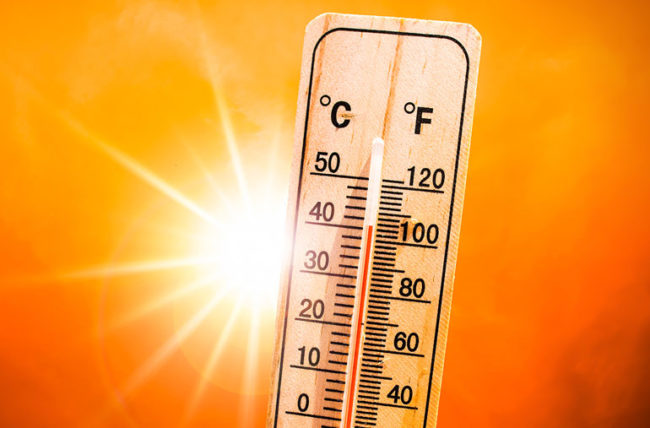A Consultant Family Physician, Dr Adesida Adewumi has warned that heat waves can exacerbate mental health conditions such as depression, anxiety, and stress.
In an interview on Sunday in Abuja, Adewumi stressed that extreme heat had significant implications for both physical and mental well-being.
His warning followed several alerts from the Nigerian Meteorological Agency (NiMet), which had cautioned residents in various states about rising temperatures and high humidity levels, likely causing thermal discomfort across regions.
“Extreme heat can lead to dehydration, heat exhaustion, and heat stroke, while prolonged exposure to high temperatures can worsen long-term conditions like heart and lung diseases,” Adewumi stated.
He emphasised that vulnerable groups, including the elderly, children, individuals with pre-existing medical conditions, and people who were overweight, were at higher risk during excessive heat waves.
“Health conditions such as dehydration, heat cramps, heat exhaustion, and life-threatening heat stroke can result from heat waves,” he added.
Adewumi also pointed out the heightened risks for pregnant women and individuals observing prolonged fasting during a heatwave, urging these groups to take extra precautions.
He advised pregnant women to stay hydrated and avoid prolonged exposure to high temperatures, as excessive heat could harm both maternal health and fetal development.
“For those fasting, it’s important to rest in cool places and drink water after sunset and before dawn to avoid dehydration and heat-related illnesses,” he said.
To stay safe, Adewumi recommends drinking at least three liters of water daily, taking cold baths, and cooling off by spraying water on the face or using damp towels.
He also advised wearing light-colored clothing to repel heat and avoiding dark, heat-retaining clothes.
“Additional safety tips include avoiding strenuous activity during peak heat hours (midday to late afternoon), wearing loose cotton clothing, and using sunscreen when outdoors.
“If you must be under the sun, wear a wide-brimmed hat to shield your head,” he added.
Adewumi emphasised the importance of staying in cool or air-conditioned environments, using fans, and avoiding alcohol and caffeine.
He also recommended light meals over heavy, hot foods.
He called on the government to minimise the effects of heatwaves by providing cooling centres, enhancing emergency services, and investing in public infrastructure like air-conditioned public spaces and healthcare services.
He suggested that corporate organisations could assist by offering flexible work hours and providing water and cooling options in workplaces.
NAN


